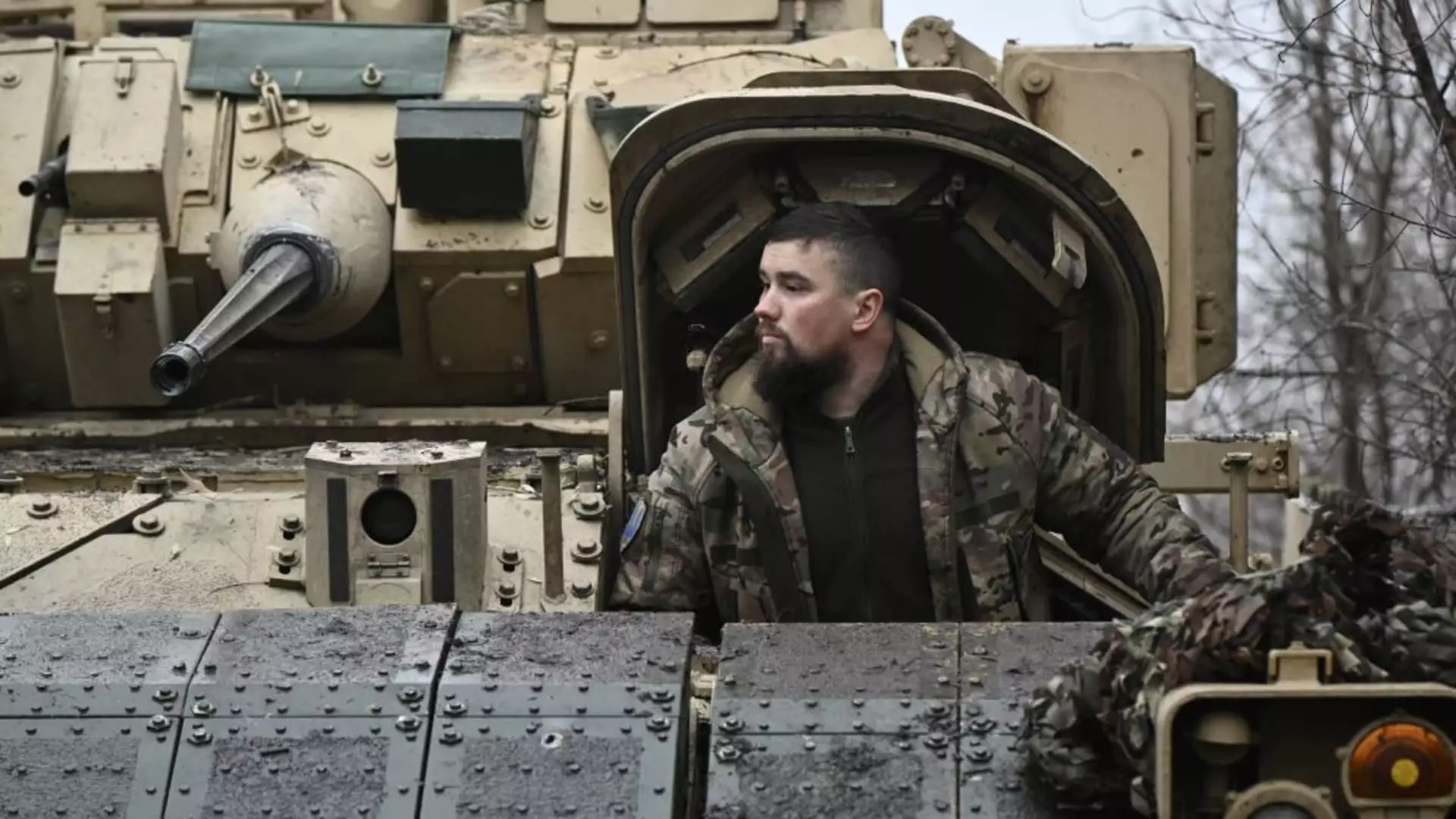Despite Russia’s ongoing war in Ukraine, there seems to be a significant lack of urgency in the West regarding the potential consequences of this conflict. The European policymakers attending the Munich Security Conference have been warned about a potential “colossal failure of imagination” in assuming that the repercussions of the Ukrainian war will not impact them directly.
One of the key points raised during the conference was the need to intensify transatlantic support for Ukraine. The Danish Prime Minister, Mette Frederiksen, criticized the Europeans’ lack of urgency in the discussions surrounding the conflict. She emphasized the importance of speeding up and scaling up efforts to provide military assistance to Ukraine.
Frederiksen highlighted the fact that Europe already possesses stockpiles of weapons, ammunition, and air defense systems that could be shared with Ukraine. She urged other countries to follow Denmark’s lead in providing military aid. The urgency of the situation was emphasized by various policymakers at the conference, underlining the need to act swiftly in the face of Russian aggression.
The recent withdrawal of Ukrainian troops from Avdiivka, a strategic city in eastern Ukraine, marked a significant shift in the conflict dynamics. Russian forces have been gaining ground, controlling a substantial portion of Ukrainian territory. As Russia consolidates its position and installs its own leadership in the region, the potential for a more direct confrontation becomes increasingly likely.
There is a growing concern that public interest in the Ukrainian war has waned, overshadowed by other global crises and domestic political issues. In the United States, discussions surrounding funding for Ukraine have been met with skepticism, questioning the relevance of the conflict to American interests. Former Secretary of State Hillary Clinton stressed the importance of standing with Ukraine and ensuring their victory in the face of Russian aggression.
The testimonies of Ukrainian soldiers who have experienced the brutality of war firsthand served as a poignant reminder of the human cost of the conflict. Their accounts of sacrifice and resilience underscored the urgent need for international solidarity and support for Ukraine. Historian Niall Ferguson highlighted the failure of Western leaders to envision themselves as potential victims of conflict, emphasizing the need to make the realities of war more visible to voters and politicians.
The psychological warfare being waged by Russia, aimed at influencing public opinion and political decision-making, presents a significant challenge for Western democracies. Hillary Clinton pointed out the efforts by Moscow to manipulate information and shape narratives, making it difficult for political leaders to rally support for Ukraine. The need to counteract Russian influence and stand in solidarity with Ukraine is becoming increasingly urgent.
The ongoing conflict in Ukraine demands a swift and decisive response from the international community. The lack of imagination and urgency in addressing the crisis poses a significant threat to global peace and security. It is imperative that policymakers, leaders, and citizens alike stand united in support of Ukraine, resisting Russian aggression and ensuring the protection of democracy and sovereignty in the region.


Leave a Reply